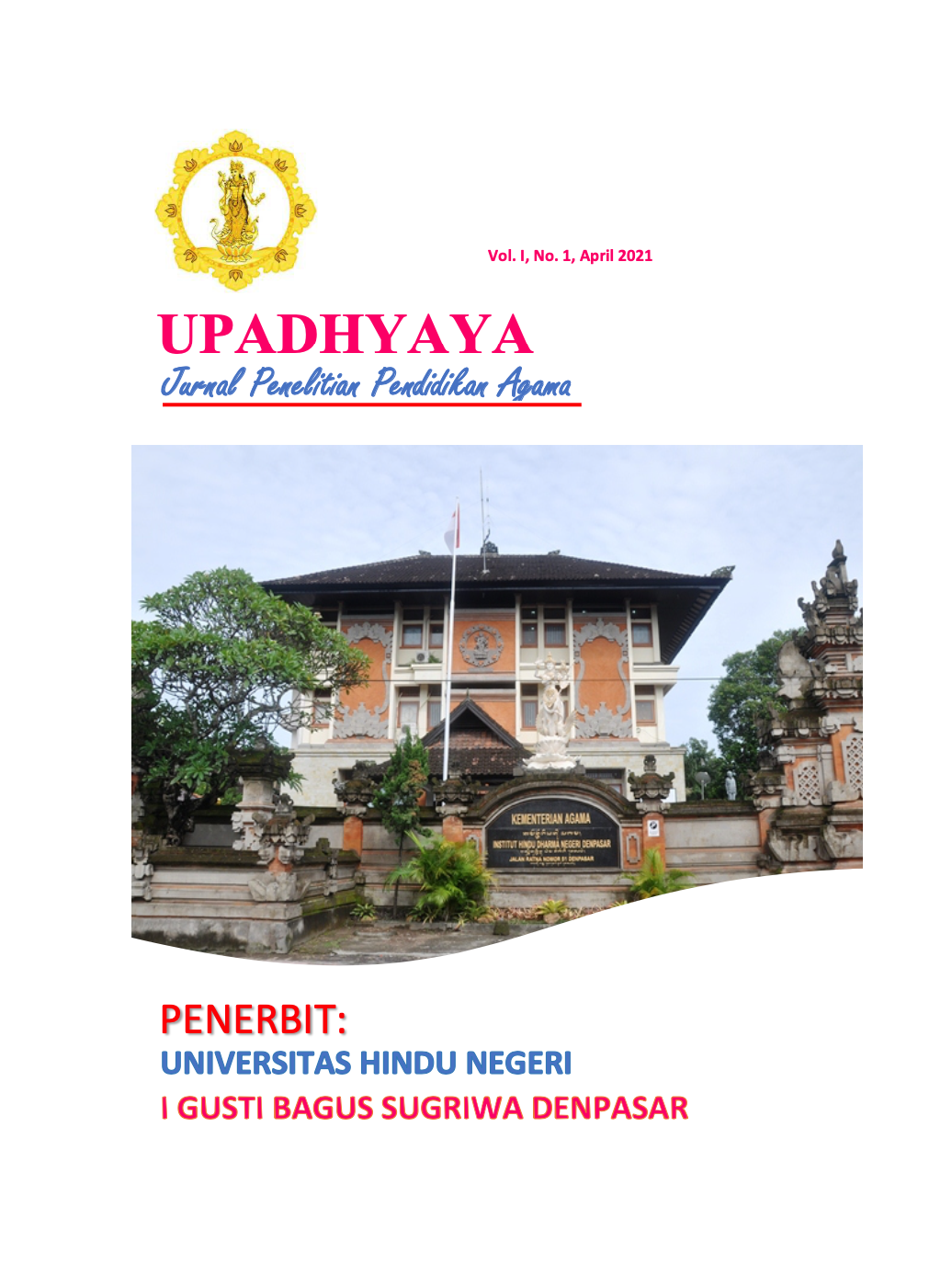KONTEKSTUALISASI KETELADANAN KEPEMIMPINAN GAJAH MADA DAN RELEVANSINYA DENGAN PENDIDIKAN AGAMA HINDU
DOI:
https://doi.org/10.25078/up.v1i1.475Keywords:
Contextualization, Exemplary, Gajah Mada LeadershipAbstract
Gajah Mada was a very legendary leader in the era of the Majapahit kingdom because he had succeeded in uniting the entire archipelago, even covering a wider area than the Republic of Indonesia. Gajah Mada is known as a man who is very religious, believes and obeys God, has a great sense of affection for fellow creatures, has great respect and love for the homeland of the archipelago and always puts the interests of the state, nation and people above personal and group interests until Majapahit reached the peak of glory. Based on this, it is necessary to conduct a study to explore the role model of Gajah Mada. There are also issues that will be discussed, among others (1) What is Gajah Mada's example in Hindu leadership? (2) What is the relevance of Gajah Mada's leadership role with Hindu religious education?. The aims of this study are (1) to find out the exemplary pattern of Gajah Mada in Hindu leadership. (2) To describe the relevance of Gajah Mada's leadership role with Hindu religious education. Theories used in this study include: Leadership Theory from Gordon Allport and Hans Eynsenck, Behaviorism Theory from Burrhus Frederic Skinner. While the data collection techniques used are: Document Study, Literature Study and Interview. Furthermore, the data that has been collected was analyzed using a qualitative descriptive method with the steps of Data Reduction, Data Classification and Data Display. The results of this study show (1) Gajah Mada's exemplary pattern in Hindu leadership includes (a) Intellectual Intelligence which includes Wisdom (Wijna), Good at Speaking (Wagmi Wakpatu), Good at Managing Strategy (Wicaksaneng Naya). (b) Emotional Intelligence which includes Courage (Mantriwira), Gaining Trust (Matanggwan), Faithful (Satya Bhakti Prabhu), Humble (Sarjjawopasama), Hard Work (Dhirotsaha), Firm (Sumantri), Submissive Enemy (Anayaken Enemy). (c) Spiritual Intelligence which includes Loving All Creatures and the Universe (Sih Samastabhuwana), True Faith (Tan Lalana). (2) The relevance of Gajah Mada's leadership role with Hindu religious education includes (a) Asta Brata's teachings which include Surya Brata, Candra Brata, Bayu Brata, Kuwera Brata, Baruna Brata, Agni Brata, Yama Brata, Indra Brata. (b) The teachings of Tri Hita Karana which include pahyangan, pawongan, palemahan. (c) Teacher's Chess teachings which include devotion to self-help teachers, devotion to visual teachers, devotion to recitation teachers, and devotion to wisesa teachers.
Downloads
Published
Versions
- 2020-04-01 (5)
- 2022-01-21 (4)
- 2022-01-21 (3)
- 2022-01-21 (2)
- 2020-04-01 (1)





